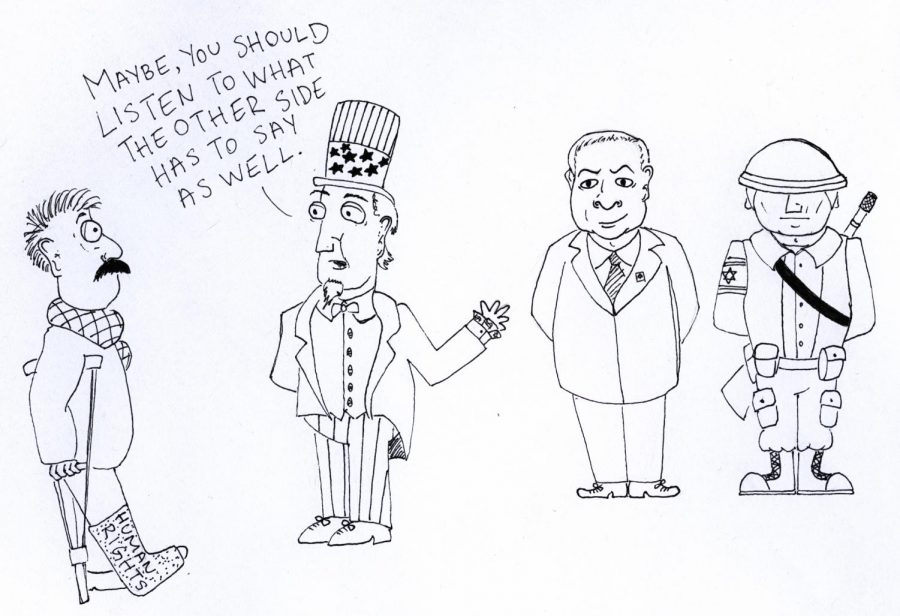Why Whitman students should care about Palestine
November 1, 2019
As a campus, we focus a lot on certain social justice issues pertaining to race and gender discrimination, but conversations about the Israeli occupation of Palestine barely happen. Although we talk about settler colonialism and occupation in other historical contexts, we rarely connect these issues to the situation in Palestine and speak on it. It is not only an issue here, but it seems to be an issue across the nation, too. While the United States has a strong direct influence on anything that is related to the “conflict,” most Americans seem to be desensitized from it and usually approach the situation with the “let’s hear both sides” attitude, which assumes that both sides of the “conflict” are equal and have the same responsibility. Most people think of it as a fight over a narrow strip of land by adversaries who each have some legitimate grievances, and some think of it as a religious fight. But all this is misguided.
If we are going to talk about settler colonialism in the Americas, then we need to talk about it when it comes to Palestinians, people who were forced to leave their native home, too. While we talk about violent colonialist movements, we also need to talk about Zionism, which drove 700,000 Palestinians out of their homes in 1948 and has now established an imperialist stronghold, one that continually breaks international law through illegal settlements that have been highly condemned by the UN and many other Western countries. Dozens of human rights abuses have been ignored while Palestinians continue to live without economic and medical resources, all while facing the increasing number of settlers that believe the land belongs only to them. What began in 1948, known as Nakba by Palestinians, heralded decades of displacement, conflict and persecution. The Palestinians are today living the consequences of that, with refugee families still displaced 70 years later; many of them still live in refugee camps across the region, including in Lebanon and the occupied Palestinian territory.
Yet, we don’t talk enough about it. Is it because of the U.S.’s uncompromising support for Israel or is it the fear of being seen as anti-Semitic? But being anti-Zionist doesn’t equal being anti-Semitic. We are allowed to criticize the Israeli government just like we do with our own and other oppressive governments. This is another widespread misconception that keeps people silent from talking about the conflict.
While the issue is still quite removed from the campus’s interests, we have the Students for Justice in Palestine (SJP) club, which began its activities last year. This student organization is trying to bring more attention to the “conflict” and is trying to raise awareness among students about the oppression that happens against Palestinians. These are admirable efforts on a campus that seems to be so desensitized towards this issue. Hopefully, there will be more awareness and more willingness to learn about this issue.





Steve • Oct 31, 2021 at 7:09 am
Unfortunately this article is poorly written and highly insensitive.
Yes, you can be critical of the Israeli government, but what are you being critical about? Many people like the author here are trying to miseducated people on the issue/conflict.
Zionism is the belief that Israel has a right to exist. Unfortunately after reading this article, I don’t get that take from this author and that’s not only unfortunate, that’s antisemetic. The people of Judah (Jews) have had ties to the land for 3+ thousands of years. They were persecuted and forced out by the byzantines, the Romans and pretty much everyone. So if you use that argument, people of Judah are actually the true decedents of the land of Israel.